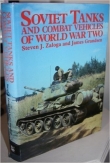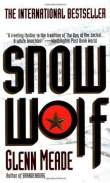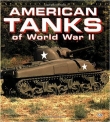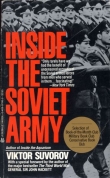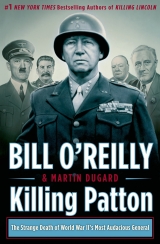
Текст книги "Killing Patton"
Автор книги: Bill O'Reilly
Жанр:
Военная история
сообщить о нарушении
Текущая страница: 23 (всего у книги 25 страниц)
Chapter 19
1 Joseph Stalin was informed by U.S. ambassador W. Averell Harriman, who made a 4:00 a.m. visit to the Kremlin to deliver the news. A visibly shaken Stalin took Harriman’s hand and held it for nearly a minute as he composed himself. The eternally suspicious Stalin then suggested that FDR’s body be autopsied for signs of food poisoning.
2 The seating capacity was 802, which allowed more than enough room for the entire membership. At Churchill’s insistence, the House of Commons was rebuilt in accordance with its original design between 1948 and 1950.
3 Churchill was a close friend of the distiller Sir Alexander Walker. The prime minister favored hard alcohol, with beer being his least favorite beverage. However, he abhorred drunkenness, and was rarely known to drink to excess. Churchill’s most famous drinking incident occurred just after the war, when the British Labour politician Bessie Braddock accosted him late one night as he left the House of Commons. “Winston, you are drunk. What’s more, you are disgustingly drunk,” she told him. To which Churchill replied, “Bessie, my dear, you are ugly. What’s more, you are disgustingly ugly. But tomorrow I shall be sober, and you shall still be disgustingly ugly.” Churchill borrowed the quote from the 1934 W. C. Fields movie It’s a Gift. It’s worth noting that despite exercising very little, if at all, and drinking so copiously, Churchill inherited a sturdy constitution. Well past his eightieth birthday, he could still boast of a very healthy blood pressure of 140 over 80.
Chapter 20
1 Quoted in statements to Third Army correspondents on May 8, 1945, at his headquarters in Regensburg, Germany.
2 There was great confusion about what was to be done with so many refugees. They had left their homes and farms. It was thought that they should be turned back, sent where they came from, and left to fend for themselves against the Russians, many of whom had been resettled in these very farms and homes. The refugees had no place to go and were unwelcome everywhere.
3 Quoted by Martin Blumenson, Patton’s staff historian for the Third Army.
4 The K-ration was a boxed meal containing breakfast, lunch, or dinner. A full box typically consisted of tinned food, crackers, cigarettes, matches, and dessert.
5 Later in life, Baum will devote himself to the creation of the Israeli state. The Jewish tank commander will also exchange holiday cards with camp commandant von Goeckel. He will become good friends with John Waters, who went on to become a four-star general. However, at the time, he was furious that Patton had risked so much for just one man.
6 The name of the attacker has never been verified, nor has the nationality of the pilot. Although the plane had Polish markings, there were no Polish Spitfires in that part of Germany on April 20.
Chapter 21
1 An estimated eighty thousand Russians died in the Battle of Berlin. Civilian casualties are difficult to place, but it is estimated that between eighty thousand and one hundred thousand citizens of Berlin were killed.
2 Walther Wenck was arrested as a prisoner of war and held by the Americans until 1947. He died in 1982, following an automobile crash. He was eighty-one years old.
3 The liquid form of cyanide. Also known as hydrocyanic acid.
4 A special medallion given to the first one hundred thousand people who joined the Nazi Party. Each was numbered in the order in which the individual became a member. Hitler’s bore the number 1, making his gift to Magda Goebbels a most treasured memento.
5 The Soviets confirmed the identity of the bodies within two weeks but, for years, pretended to know nothing about Hitler’s fate. At the Potsdam Conference in July 1945, Joseph Stalin made a point of pretending that Hitler was alive and on the run. Stalin, a master at creating uncertainty, believed that the ghosts of Nazism would enhance his power.
Chapter 22
1 Priority for going home was based on a system of points accrued by months in service, time in combat, number of children under the age of eighteen, and whether the individual had been awarded a medal such as the Bronze Star or Purple Heart. As for the Third’s job in Germany after the war, days were spent making sure that displaced people did not travel into the American occupation zone, patrolling a “frontier” between the American and Russian lines by erecting signs and barricades to prevent the flow of individuals traveling from east to west, and sealing off Germany to prevent intelligence officials and other high-ranking members of the Nazi Party from escaping the country.
2 The fifty-four-year-old Patterson was a native of Glens Falls, New York, who had been awarded the Distinguished Service Cross for bravery during World War I. He later practiced law and served as a U.S. District Court judge before accepting the position of undersecretary of war when FDR offered it to him in 1940. Patterson became a favorite of Harry Truman, who elevated him to secretary of war on September 27, 1945. Patterson served two years before returning to the law. His firm of Patterson Belknap Webb & Tyler still exists in New York City. Patterson died on January 22, 1952, when the plane he was flying in from Buffalo to Newark crashed into a house while trying to land. He was rushing to get home and at the last minute had traded in his rail ticket for the plane ticket.
3 Narodny Komissariat Vnutrennikh Del, translated as the “People’s Commissariat for Internal Affairs.”
Chapter 23
1 At the heart of the dispute was the Morgenthau Plan, a strategy to decimate postwar Germany by destroying its industrial strength and forcing the nation to return to its agrarian roots, soon to produce only beer, grain, and textiles. This would unknowingly have played into Russian hands, because by reducing Germany’s industrial output the nation would not be able to attack Russia again.
2 Oppenheimer is quoting from the Bhagavad Gita, a Hindu scripture.
3 There are some who believe that Robert Oppenheimer, who had known Communist leanings and whose wife was once a member of the Communist Party, was among those providing nuclear secrets to the Russians. In fact, the Soviet spy’s name was Klaus Fuchs.
4 Patton admired the discipline of the German military and the German work ethic.
5 Although Patton was received as a hero when he returned to the United States in the summer of 1945, his affair with Jean Gordon caused considerable animosity between him and his wife. “Beatrice gave me hell,” Patton told his friend Gen. Everett Hughes upon his return to Bavaria. “I’m glad to be in Europe.”
6 Bandera will himself be assassinated by the Russians in 1959, as noted in the Central Intelligence Agency journal Studies in Intelligence 19, no. 3.
7 On May 4, Patton received approval from Dwight Eisenhower to invade Czechoslovakia. At this point in the war, the Third Army comprised eighteen divisions and more than half a million men, making it the largest U.S. force in history. The Third Army swept into western Czechoslovakia, quickly capturing vast regions of the nation and accepting the surrender of thousands of German prisoners who did not want to fall into Russian hands. On May 6, Eisenhower ordered Patton to halt—which he did, albeit very reluctantly. However, elements of the Third Army did not receive the order. In the ancient city of Rokycany, just east of Plze, there was conflict when the American and Russian armies linked up, very nearly starting the new war for which Patton had long argued.
8 The Russians denied the Americans and British access to many of the POW camps they had liberated, and also denied that they held any Allied POWs. Truman, and Roosevelt before him, allegedly knew otherwise, but did not want to create strife with Stalin. Thus it is believed that many American and British soldiers died in Russian captivity because their release was not demanded.
Chapter 24
1 This is a reference to the smooth-talking religious officials whom Jesus of Nazareth condemned for their lies and air of self-importance, noting that their acts and their beliefs differed greatly.
2 The source of this innuendo is Harry Truman, speaking to a biographer in 1974. Marshall’s reasons were as much personal as political. It was widely held that Eisenhower had a great political future after the war, but Americans did not look kindly on candidates who were divorced—particularly one who left his wife for a foreigner several years younger. Marshall, in effect, believed he was saving Eisenhower from making a great mistake.
3 Raymond Daniell of the Chicago Daily News would later attempt to apologize to Beatrice Patton for his part in this scheme, and for his anti-Patton bias. She refused to accept his apology.
4 Named for Joseph Stalin. In the Cyrillic alphabet, IS is the close equivalent to his initials.
Chapter 25
1 In addition to camouflaging the villa’s exterior, Stalin added several curious security details to it. He ordered that the drapes be short, so that he could see the feet of anyone trying to hide behind them. There were no rugs, so that Stalin could hear any approaching footsteps. Also, the backs of the sofas were bulletproof, and designed to be high enough so that Stalin’s head was not visible when he was seated.
2 At the 2014 Winter Olympics in Sochi, Stalin’s dacha served as a hotel. Rooms rented for seven thousand rubles—approximately two hundred dollars—per night.
3 In 1964, CIA analysis cast suspicion on Sedov’s death. It pointed out that the autopsies did not probe for evidence of poisoning, such as traces of microbes that might have been injected, nor did they include a thorough search of the nervous system and the skin, to make sure that the location of all injection marks was consistent with medical procedures. Sedov’s successor in Trotsky’s Communist movement, a German named Rudolf Klement, was murdered by NKVD agent Alexander Korotkov on June 13, 1938. His headless body was found floating in Paris’s Seine River.
4 Known as the Bloody Dwarf, Yezhov rose to power by arranging the arrest and execution of Yagoda. He then went on an unparalleled terror spree, killing an estimated six hundred thousand men and women in just two years. The killing was systematic, with security officials given murder quotas that, if not met, resulted in their own executions. Beria, Yezhov’s successor, almost became one of Yezhov’s victims. However, he cleverly aligned himself with Stalin, and Yezhov’s influence soon waned. The Bloody Dwarf was arrested on April 10, 1939, and soon confessed to anti-Soviet activities and homosexual behavior. He was executed on February 4, 1940. His nickname then changed to the Vanishing Commissar, because his image was soon removed from all official photographs until it was as if he had never existed at all.
5 Testimony of Semyon Zhukovsky, head of the Twelfth Department of the NKVD. File number 975026 in the archives of the Soviet Senior Military Prosecutor’s Office.
Chapter 26
1 In all, twenty-four political and military leaders of the Third Reich were tried at Nuremberg. Martin Bormann was tried in absentia. Twelve will be sentenced to death by hanging, seven will be given time in prison, three will be acquitted, one will commit suicide four days after the trial begins, and one will be declared medically unfit for trial.
2 The rumor was untrue, and some believe it was generated by FBI director J. Edgar Hoover.
3 The forty-eight-year-old head of British intelligence is widely considered to be the model for Ian Fleming’s fictitious spy, James Bond. It was Stephenson who convinced FDR that Donovan should head the OSS.
4 Bazata was held in high esteem by members of the OSS. No less than William Colby, a former OSS agent who went on to become head of the Central Intelligence Agency, made a point of depicting Bazata’s heroism in the 1978 book Honorable Men. Bazata’s obituary in the New York Times on August 22, 1999, was specific in recounting his work behind enemy lines in France. However, for three decades after the general died, Bazata remained silent about his alleged role in Patton’s death. These quotes come from a letter he wrote to a friend on August 2, 1975. He later confirmed these claims in a 1979 article in Spotlight magazine.
Chapter 27
1 In addition to being the location of Patton’s headquarters, Bad Nauheim was also the site of Hitler’s Adlerhorst command post. Also, Franklin Delano Roosevelt’s father used to travel there to take the waters for his heart condition. Finally, Bad Nauheim was host to Elvis Presley during his short stint in the army between 1958 and 1960. The gate to the city’s castle is depicted on the cover of Presley’s 1959 No.1 hit record, “A Big Hunk o’ Love.”
2 Thompson will try to cover his tracks regarding the “borrowed” truck by telling investigators that at the time of the accident he was turning into a quartermaster depot to return the vehicle, but in fact the depot was much farther down the road. There was a redbrick building to Patton’s right, with a broad driveway that might have been Thompson’s intended path. He will later change his story to say that he was turning onto a side street. But that is suspicious. The closest street to Thompson’s vehicle was fifteen feet north of the accident. In effect, Thompson did not know where he was going.
Afterword
1 This was reported in the Washington Star.
2 This is the citation for Bazata’s Distinguished Cross: “The President of the United States of America, authorized by Act of Congress, July 9, 1918, takes pleasure in presenting the Distinguished Service Cross to Captain (Infantry) Douglas D. Bazata, United States Army, for extraordinary heroism in connection with military operations against an armed enemy as an organizer and Director of Resistance forces serving with the Office of Strategic Services, in action against enemy forces from 27 August 1944 to 6 October 1944. Captain Bazata, after having been parachuted into the Haute Saone Department of France, organized and armed Resistance Forces, numbering 7,000; planned and executed acts of sabotage against rail and highway markers in order to divert German convoys onto secondary routes, leading them into well prepared ambushes and causing them to lose many men and motor vehicles. All of these tasks were performed in civilian clothing. Captain Bazata’s services reflect great credit upon him and are in keeping with the highest traditions of the armed forces of the United States.”
APPENDIX
Gen. George S. Patton’s Speech to the U.S. Third Army
SOUTHERN ENGLAND
JUNE 5, 1944
Be seated.
Men, this stuff that some sources sling around about America wanting out of this war, not wanting to fight, is a crock of bullshit. Americans love to fight, traditionally. All real Americans love the sting and clash of battle.
You are here today for three reasons. First, because you are here to defend your homes and your loved ones. Second, you are here for your own self-respect, because you would not want to be anywhere else. Third, you are here because you are real men and all real men like to fight.
When you, here, every one of you, were kids, you all admired the champion marble player, the fastest runner, the toughest boxer, the big league ball players, and the All-American football players. Americans love a winner. Americans will not tolerate a loser.
Americans despise cowards.
Americans play to win all of the time. I wouldn’t give a hoot in hell for a man who lost and laughed. That’s why Americans have never lost nor will ever lose a war; for the very idea of losing is hateful to an American.
You are not all going to die. Only two percent of you right here today would die in a major battle. Death must not be feared. Death, in time, comes to all men. Yes, every man is scared in his first battle. If he says he’s not, he’s a liar. Some men are cowards but they fight the same as the brave men or they get the hell slammed out of them watching men fight who are just as scared as they are.
The real hero is the man who fights even though he is scared. Some men get over their fright in a minute under fire. For some, it takes an hour. For some, it takes days. But a real man will never let his fear of death overpower his honor, his sense of duty to his country, and his innate manhood. Battle is the most magnificent competition in which a human being can indulge. It brings out all that is best and it removes all that is base. Americans pride themselves on being He Men and they are He Men.
Remember that the enemy is just as frightened as you are, and probably more so. They are not supermen.
All through your Army careers, you men have bitched about what you call “chickenshit drilling.” That, like everything else in this Army, has a definite purpose. That purpose is alertness. Alertness must be bred into every soldier. I don’t give a f-ck for a man who’s not always on his toes. You men are veterans or you wouldn’t be here. You are ready for what’s to come. A man must be alert at all times if he expects to stay alive. If you’re not alert, sometime, a German son-of-an-asshole-bitch is going to sneak up behind you and beat you to death with a sock full of shit!
There are four hundred neatly marked graves somewhere in Sicily, all because one man went to sleep on the job. But they are German graves, because we caught the bastard asleep before they did.
An Army is a team. It lives, sleeps, eats, and fights as a team.
This individual heroic stuff is pure horse shit. The bilious bastards who write that kind of stuff for the Saturday Evening Post don’t know any more about real fighting under fire than they know about f-cking! We have the finest food, the finest equipment, the best spirit, and the best men in the world. Why, by God, I actually pity those poor sons-of-bitches we’re going up against. By God, I do.
My men don’t surrender. I don’t want to hear of any soldier under my command being captured unless he has been hit. Even if you are hit, you can still fight back. That’s not just bullshit either. The kind of man that I want in my command is just like the lieutenant in Libya, who, with a Luger against his chest, jerked off his helmet, swept the gun aside with one hand, and busted the hell out of the Kraut with his helmet. Then he jumped on the gun and went out and killed another German before they knew what the hell was coming off. And, all of that time, this man had a bullet through a lung. There was a real man!
All of the real heroes are not storybook combat fighters, either. Every single man in this Army plays a vital role. Don’t ever let up. Don’t ever think that your job is unimportant. Every man has a job to do and he must do it. Every man is a vital link in the great chain.
What if every truck driver suddenly decided that he didn’t like the whine of those shells overhead, turned yellow, and jumped headlong into a ditch? The cowardly bastard could say, “Hell, they won’t miss me, just one man in thousands.” But, what if every man thought that way? Where in the hell would we be now? What would our country, our loved ones, our homes, even the world, be like?
No, Goddamnit, Americans don’t think like that. Every man does his job. Every man serves the whole. Every department, every unit, is important in the vast scheme of this war.
The ordnance men are needed to supply the guns and machinery of war to keep us rolling. The Quartermaster is needed to bring up food and clothes because where we are going there isn’t a hell of a lot to steal. Every last man on K.P. has a job to do, even the one who heats our water to keep us from getting the “G.I. Shits.”
Each man must not think only of himself, but also of his buddy fighting beside him. We don’t want yellow cowards in this Army. They should be killed off like rats. If not, they will go home after this war and breed more cowards. The brave men will breed more brave men. Kill off the Goddamned cowards and we will have a nation of brave men.
One of the bravest men that I ever saw was a fellow on top of a telegraph pole in the midst of a furious firefight in Tunisia. I stopped and asked what the hell he was doing up there at a time like that. He answered, “Fixing the wire, Sir.” I asked, “Isn’t that a little unhealthy right about now?” He answered, “Yes, Sir, but the Goddamned wire has to be fixed.” I asked, “Don’t those planes strafing the road bother you?” And he answered, “No, Sir, but you sure as hell do!” Now, there was a real man. A real soldier. There was a man who devoted all he had to his duty, no matter how seemingly insignificant his duty might appear at the time, no matter how great the odds.
And you should have seen those trucks on the road to Tunisia. Those drivers were magnificent. All day and all night they rolled over those son-of-a-bitching roads, never stopping, never faltering from their course, with shells bursting all around them all of the time. We got through on good old American guts. Many of those men drove for over forty consecutive hours. These men weren’t combat men, but they were soldiers with a job to do. They did it, and in one hell of a way they did it. They were part of a team.
Without team effort, without them, the fight would have been lost. All of the links in the chain pulled together and the chain became unbreakable.
Don’t forget, you men don’t know that I’m here. No mention of that fact is to be made in any letters. The world is not supposed to know what the hell happened to me. I’m not supposed to be commanding this Army. I’m not even supposed to be here in England. Let the first bastards to find out be the Goddamned Germans. Some day I want to see them raise up on their piss-soaked hind legs and howl, “Jesus Christ, it’s the Goddamned Third Army again and that son-of-a-f-cking-bitch Patton.”
We want to get the hell over there. The quicker we clean up this Goddamned mess, the quicker we can take a little jaunt against the purple-pissing Japs and clean out their nest, too. Before the Goddamned Marines get all of the credit.
Sure, we want to go home. We want this war over with. The quickest way to get it over with is to go get the bastards who started it. The quicker they are whipped, the quicker we can go home. The shortest way home is through Berlin and Tokyo. And when we get to Berlin I am personally going to shoot that paper hanging son-of-a-bitch Hitler. Just like I’d shoot a snake!
When a man is lying in a shell hole, if he just stays there all day, a German will get to him eventually. The hell with that idea. The hell with taking it. My men don’t dig foxholes. I don’t want them to. Foxholes only slow up an offensive. Keep moving. And don’t give the enemy time to dig one either. We’ll win this war, but we’ll win it only by fighting and by showing the Germans that we’ve got more guts than they have; or ever will have.
We’re not going to just shoot the sons-of-bitches, we’re going to rip out their living Goddamned guts and use them to grease the treads of our tanks. We’re going to murder those lousy Hun c-cksuckers by the bushel-f-cking-basket. War is a bloody, killing business. You’ve got to spill their blood, or they will spill yours. Rip them up the belly. Shoot them in the guts. When shells are hitting all around you and you wipe the dirt off your face and realize that instead of dirt it’s the blood and guts of what once was your best friend beside you, you’ll know what to do!
I don’t want to get any messages saying, “I am holding my position.” We are not holding a Goddamned thing. Let the Germans do that. We are advancing constantly and we are not interested in holding onto anything, except the enemy’s balls. We are going to twist his balls and kick the living shit out of him all of the time.
Our basic plan of operation is to advance and to keep on advancing regardless of whether we have to go over, under, or through the enemy. We are going to go through him like crap through a goose; like shit through a tin horn!
From time to time there will be some complaints that we are pushing our people too hard. I don’t give a good Goddamn about such complaints. I believe in the old and sound rule that an ounce of sweat will save a gallon of blood. The harder we push, the more Germans we will kill. The more Germans we kill, the fewer of our men will be killed. Pushing means fewer casualties. I want you all to remember that.
There is one great thing that you men will all be able to say after this war is over and you are home once again. You may be thankful that twenty years from now when you are sitting by the fireplace with your grandson on your knee and he asks you what you did in the great World War II, you won’t have to cough, shift him to the other knee and say, “Well, your Granddaddy shoveled shit in Louisiana.” No, Sir. You can look him straight in the eye and say, “Son, your Granddaddy rode with the Great Third Army and a Son-of-a-Goddamned-Bitch named Georgie Patton!”
That is all.

